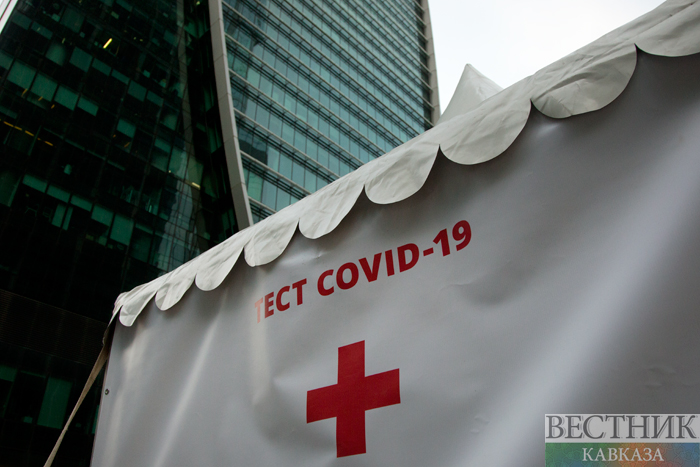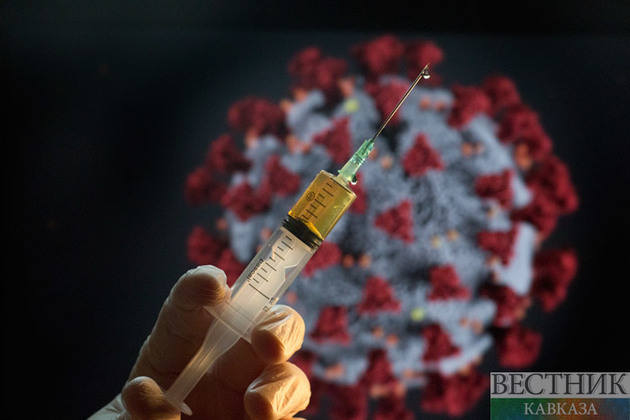Two months after Armenia introduced strict COVID-19 restrictions that made vaccinations near-mandatory amid record death rates, daily case numbers have dropped significantly, but the country is still battling a strong vaccine denial movement, Al Jazeera writes.
New reported infections remain relatively high at more than 500 a day but have dropped from more than 2,000 in late October. About 15 percent of the population has now been doubly vaccinated, compared with five percent when new restrictions were brought in on October 1. However, Armenia remains the country with the lowest vaccination rates in the Caucasus region country, with its deaths from coronavirus averaging more than 30 a day – a big number considering it has a population of just three million. It has one of the world’s highest per capita death tolls, according to Our World in Data website.
Under the new rules, most unvaccinated public and private sector employees were required to take a PCR test twice a month at their own expense, with prices amounting to roughly $20 each time – a significant sum considering the average monthly salary is little more than $400. However, a recent update to the rules means PCR tests must now be taken weekly. From January 1 a health pass will need to be shown to enter cultural and leisure venues.
Vaccine scepticism has a history in Armenia
Dr Gayane Sahakyan, who manages Armenia’s national immunisation programme, said the country is aiming to have at least 50 percent of the population vaccinated with at least one dose by the end of the year. However, she said that rampant disinformation and politicisation of the issue continues to increase mistrust of vaccines against COVID-19.
“Vaccine scepticism has a history in Armenia, it is a little politicised. If a political party wants to drum up opposition for the government they use immunisation and COVID-19 is no different,” said Dr Sahakyan. “The main concern for people is safety and the effectiveness as they are new vaccines. Some think they are too new, others that they are a global tool to control the population. In Armenia, the only new thing here is that political parties now use doctors to deliver this message.”
According to local media, doctors and medical professionals have been key in spreading disinformation about the safety and role of COVID-19 vaccines.
One such doctor, a sex pathologist called Samvel Grigoryan, has attempted to give weight to a conspiracy theory that has circulated widely in the pandemic, claiming that the vaccines were created with the technology used for genetic engineering and could endanger reproductive health. The US Centre for Disease Control has said that there is no evidence that the new vaccines against COVID-19 cause infertility.
Grigoryan has been a vocal critic of the Ministry of Health since he was fired from his position as the director of an HIV centre in 2020, reported media.am. He and other critical doctors are affiliated with initiatives such as Free Will, a group set up by right-wing politicians to combat government vaccination efforts.

Dr Sahakyan said that Sinopharm is more trusted in Armenia than other vaccines, such as AstraZeneca, as people believe the side effects are milder. In late November, Poland donated more than 200,000 AstraZeneca shots to the country in an effort to help it combat the lukewarm reception to the vaccines. However, as the British vaccination, as well as other Western-produced jabs such as Moderna and Pfizer-BioNTech, are not trusted by the local population, most went to vaccine tourists from countries such as Iran, said Dr Sahakyan.
"We never got complete information"
Armenia’s vaccination drive is also hampered by health concerns among the elderly and the fallout from last year’s war with Azerbaijan over the Nagorno-Karabakh enclave. Stress caused by border skirmishes and feelings of insecurity have left residents near the area apathetic towards the pandemic. Many Armenian citizens are divided by the current measures, arguing that they are either too severe or do not go far enough to rein in high death rates.
Hasmik Sargsyan, 55, a teacher in the rural Aragatsotn region, said that it has become difficult to decipher fact from fiction, with the government doing little to address the population’s concerns. “The information the government gives through TV and the internet is so limited and is hard to understand,” she said.
Sargsyan, who had COVID-19 in August, is yet to be vaccinated but plans to get the jab in the coming days, relying on her children to guide them on which to get. “Some of the doctors in our hospitals make us more worried about the vaccines, while government officials tell us to rely on consultations with doctors. There are rumours about side effects everywhere and we have a lot of questions, but there is no one ready to give answers. It’s hard to distinguish which information is reliable and what we should be careful of,” she said.
Mariam Ghazaryan, 24, who works as a shop assistant at one of Yerevan’s largest bookstores, said that people do not respect COVID-19 restrictions such as wearing masks, putting her at risk every day. “I meet roughly 400 to 500 people in the store a day and I ask most of them to put on a mask. The young people are the most reckless; every time I ask them, they react negatively as if they don’t care. Many don’t even believe COVID-19 exists at all or behave like it’s all a game,” she said.
Ghazaryan also contracted COVID-19 earlier this year but has since been vaccinated with Moderna. She said that little has been done to make sure people adhere to COVID-19 measures in public spaces. “I personally don’t think anything bad about vaccines, but government drives have not been implemented as they should’ve been. It’s been done badly – we never got complete information about vaccines and you can’t understand how to read the flow of information to get the full picture.”
















